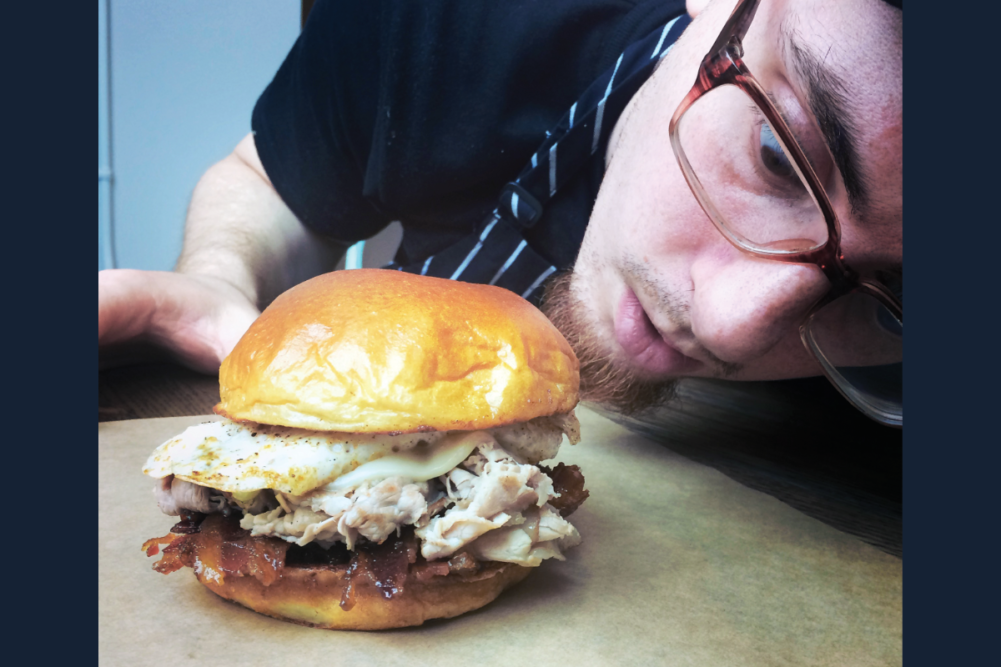Steven Cabalar, co-owner of Cabalar Meat Co. in Lancaster, Pa., is a whole-animal butcher and restaurant operator who makes the most of the beef cattle, pigs and chickens that come into his butcher shop. He serves the meat products in his restaurant next door.
But there is more to this story. When Pennsylvania Governor Tom Wolf required “non-essential” businesses to close due to the coronavirus (COVID-19), similar to what happened in many other states, a large number of restaurants in Pennsylvania closed, except for carryout and curbside delivery. And, the reopening of many of them remains questionable. But not Cabalar Meat Co. Not only is this company beating the odds in the face of foodservice closures, but its entire business is growing.
Even though Cabalar’s restaurant operates doing curbside and takeout only, he has been able to keep his employees working. He attributes this success to several factors. One is using meat raised in pastures or woodlands on local farms in the region. He sells beef, poultry and pork in his butcher shop, as well as using the meat as the mainstay of dishes on his restaurant menu. Another reason is the dishes on his menu are well suited to takeout and curbside pickup.
Cabalar Meat Co. has been operating in the downtown area of Lancaster since February 2018. Steven Cabalar, who co-owns the butcher shop and restaurant with his wife Lianne, grew up in Midland Park, a town in northern New Jersey close to New York City. He was trained at the Culinary Institute of America (CIA) in Hyde Park, NY, and interned at Fleisher’s Craft Butchery in Brooklyn, NY, where he learned all about the quality of meat, how to be a craftsman as a butcher, and what high-caliber service means.
Before opening Cabalar Meat Co., Steven owned a catering business in Philadelphia. Lianne Cabalar is a pastry chef who produces biscuits, muffins and cookies for the business. During the pandemic, she has been making masks for restaurant employees and members of their families. The couple has also been able to raise money to buy meals for healthcare workers at a nearby hospital in the city.
Steven calls himself a “whole-animal butcher” because his cuts of meat come from a whole carcass, and nothing goes to waste. He also has a smoker to make ham, jerky and bacon.
Staying local
To Steven and Lianne, it is important that their meat comes from local farms. “It’s just a lot easier to deal with local people, like farmers,” he said. “They, and we, surprisingly are not affected so much by what’s going on. We make all our baked goods, sausage grinds and smoked meats in-house. That is very helpful to the business, as well.
“Utilizing a whole animal philosophy, which I do, allows us to provide specialty cuts of meat that you would not be able to find elsewhere,” he said. “For example, every part of a pig is used, it has a destination.”
Steven outlined how each part of the pig becomes a different cut of meat.
“For our pork products, we want our pigs to be well balanced, between lean and fat. That helps us create good pork,” he said.
One response to the pandemic is a preference by customers for simple, old-fashioned “comfort food,” instead of complicated recipes. “There has been a pickup in the desire for meat, overall,” he said.
The farms where their animals are raised use sustainable practices. They include Myer Springdell Farms, Country Meadows Farms, Livengood Family Farm and Mirror Image Farms.
“One reason we call on farms from our local region is that they will meet our specifications for our meat,” Steven said. “Our beef is pasture-raised and 100% grass-fed. At no point in their lives are they ever fed grain. We believe in having the animals eat what nature intended, creating healthier animals.”
The pigs are raised in woodland and pasture settings, fed soy-free, non-GMO grains and seasonal produce when available. His poultry is fully pastured, antibiotic and hormone free, fed non-GMO grain and spend most of their lives outside. Vegetables are sourced locally, and he makes use of seasonal ingredients when they are available.
The restaurant menu reflects Steven and Lianne’s devotion to meat, and their interest in offering not-so-often seen items to the public. Entrees and items on the menu include beef tallow fries – poutine – which is tallow fries with fonduta cheese curds and homemade beef gravy. Other items include chicken wings with lard confit, hot sauce and bleu cheese, and pulled pork mac and cheese made with beef barbecue, pork chops and spareribs.
“Our sandwiches include beef and cheese, with braised beef neck, pulled pork, pastrami Reuben with smoked beef navel, a rare cut that is used to make pastrami, a Cuban sandwich with smoked ham, Banh Mi, which is smoked pork loin,” Steven said. “We also have many burgers, including a classic, a patty melt, chorizo, barbecue bacon, and special burgers. And the list goes on, including desserts and craft beers.”
Cabalar has also expanded the number of tables and seats for dine-in restaurant eating, which Steven hopes to expand even further as the pandemic fades and eat-in rules and restrictions are lifted. He also is planning to have outdoor space for dining next to the butcher shop and restaurant, which will lend itself to the future of restaurant dining post-pandemic.
For Cabalar, drawing on meats from local farms for his restaurant and butcher shop is working out well. It is also a break for his farm suppliers. In some areas of the country, farmers are even being pushed to sell food curbside, because of a breakdown in the supply chain. And while Cabalar Meat Co. is succeeding, some observers wonder if an eventual recovery in the restaurant business will benefit chain restaurants more, rather than benefit those that are locally owned.

